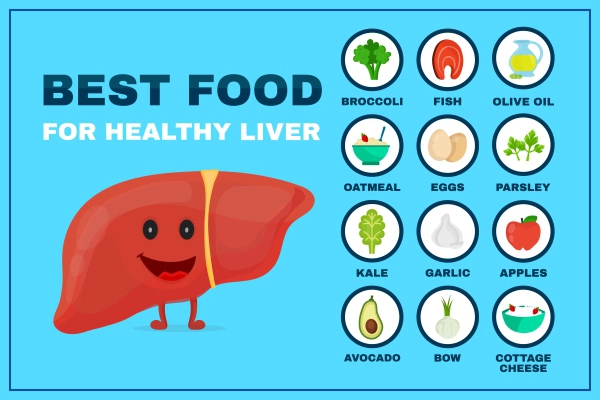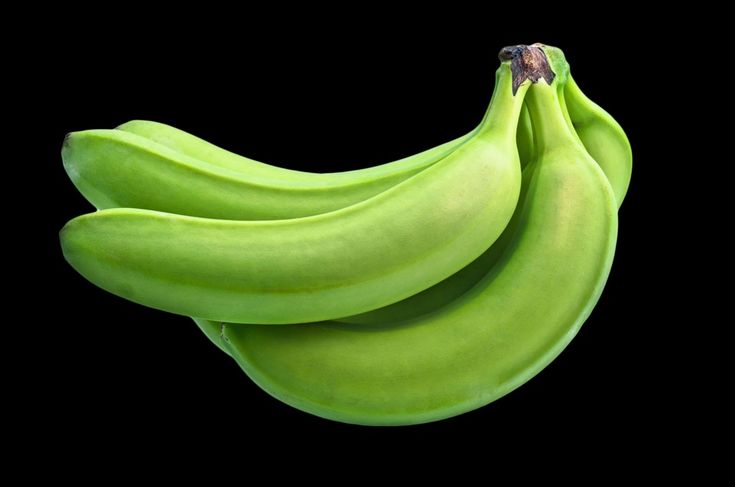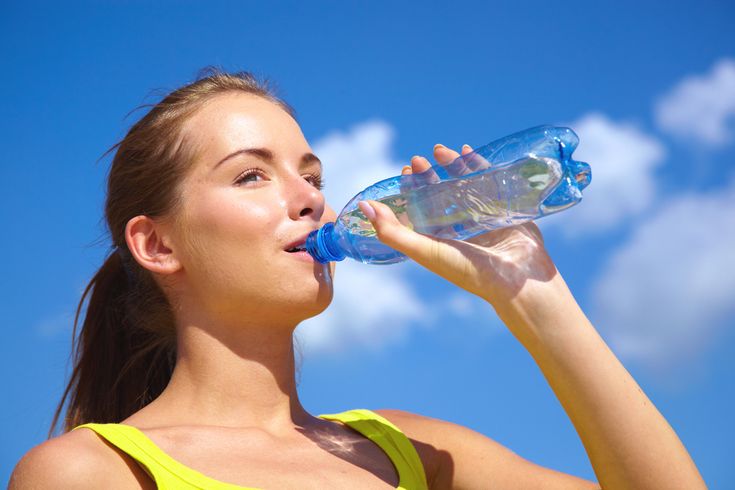7 Natural Ways to Reduce Liver Heat
The liver is essential for maintaining general health, controlling metabolism, and cleansing the body. However, symptoms like irritation, exhaustion, headaches, red eyes, acne breakouts, and even digestive problems can arise when too much “liver heat” accumulates, which is frequently brought on by poor food, stress, sleep deprivation, or alcohol consumption. Restoring equilibrium and fostering long-term wellbeing in traditional medicine requires releasing hepatic heat.

Here are seven efficient methods to reduce liver heat and enhance general well-being.
1. Consume More Protein and Vegetables
The cornerstone of liver health is a diet high in nutrients. Antioxidants and fiber found in fresh vegetables like spinach, kale, broccoli, carrots, and cucumbers assist the liver eliminate toxins and cool down.
Fish, poultry, eggs, tofu, and lentils are examples of lean proteins that offer vital amino acids for liver cell repair and good function. Steer clear of fatty, fried meals as they might aggravate inflammation and overwork the liver.
For example, you may maintain your meals light and well-balanced while still giving your liver a refreshing boost by including a salad with cucumbers, lettuce, and cooked eggs in your lunch.
Advice: Incorporate vegetables with a bitter taste, such as dandelion greens and bitter melon, which are both recognized in traditional medicine for their cooling qualities.
2. Drink plenty of water
The easiest and most efficient method to aid your liver in processing and eliminating toxins is to drink water. Staying properly hydrated helps with digestion, avoids stagnation, and lowers internal heat accumulation.
Try to drink eight to ten glasses of water each day. Herbal drinks with cooling properties, such green tea, peppermint, and chrysanthemum, can help reduce liver heat.
For example, having a glass of lukewarm water with a slice of lemon first thing in the morning promotes liver cleaning and stimulates digestion.
Advice: Steer clear of sodas and other sugary beverages in excess since they might strain the liver and cause it to produce more heat.
3. Reduce Your Carbohydrate Consumption
White bread, spaghetti, chocolates, and pastries are examples of refined carbohydrates that can cause fat to build up in the liver, increasing internal heat and inflammation. Choose whole grains like quinoa, brown rice, and oats instead, as they deliver energy gradually and don’t induce blood sugar spikes.
Non-alcoholic fatty liver disease (NAFLD), a prevalent liver-related disorder associated with poor nutrition, can also be avoided by reducing carbohydrate intake.
For example, you may satisfy your hunger and lessen the strain on your liver by substituting grilled fish and vegetable stir-fry for your dinner bread.
4. Stay away from alcohol
One of the primary causes of hepatic heat and chronic liver damage is alcohol. The liver must work harder to break down ethanol from even modest drinking, which produces extra heat and toxins.
Reduce alcohol intake entirely or limit it to a rare, infrequent treat if you wish to save your liver and lower internal heat.
Example: For a cool, liver-friendly dinnertime beverage, consider substituting sparkling water with fresh mint and lime for the glass of wine you usually enjoy.
5. Get Enough Sleep
According to traditional Chinese medicine, liver regeneration and cleansing are at their highest when you sleep, particularly between 11 p.m. and 3 a.m. Sleep deprivation can slow down the removal of toxins, impair immunity, and cause the liver to overheat.
To allow your liver the most time to heal, aim to get 7 to 8 hours of good sleep every night and try to get to bed by 11 p.m.
For example, establishing a nightly wind-down ritual that includes avoiding electronics, sipping a cup of chamomile tea, and decreasing lighting might enhance liver cooling and sleep quality.
6. Control Your Stress
One of the main causes of hepatic heat accumulation is stress. Your body releases stress hormones when you’re under stress, which can cause strain in your liver, raise inflammation, and interfere with digestion.
Deep breathing, yoga, meditation, and spending time in nature are among relaxation methods that can help cool down and relieve emotional tension.
For example, ten minutes of calm breathing techniques before bed can improve sleep quality, lessen liver strain, and lower stress hormones.
Advice: Keeping a journal and communicating your feelings might also help you avoid emotional accumulation that could harm your liver.
7. Engage in Regular Exercise
Frequent exercise promotes detoxification, lowers liver fat, and increases blood circulation. Additionally, exercise increases metabolism, regulates hormones, and reduces stress, all of which serve to reduce liver heat.
Five days a week, try to get in at least 30 minutes of moderate activity. This might involve swimming, cycling, brisk walking, or mild yoga.
Example: going for a stroll in the evening after supper helps with digestion, liver detoxification, and heat retention. Cooling down your body is only one aspect of reducing hepatic heat; another is establishing long-term equilibrium through good practices. You can safeguard your liver and enhance your general health by eating meals high in nutrients, drinking enough of water, avoiding alcohol, controlling your stress, getting enough sleep, and exercising.
Remember to see a healthcare provider for an accurate diagnosis and treatment if you suffer from chronic liver-related symptoms including jaundice, extreme exhaustion, or stomach discomfort.



